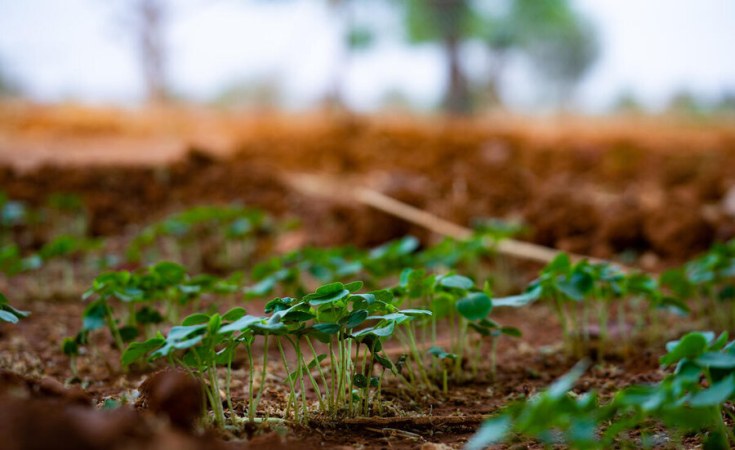Nevena Ðoković, 22, from Leposaviq/Leposavić municipality in Kosovo*, nurtures big plans from her small greenhouse. "I am learning new things about growing vegetables every day, and plan to harvest 120 kilogrammes of tomatoes every day soon," she hopes, inspecting an irrigation pipe.
For thousands of young people of Kosovo like Nevena, farming is an important means to create a sustainable future in a region building back from years of conflict, while navigating the present impacts of climate change on agriculture manifesting through forest fires, droughts, soil erosion and flooding.
Over 700 million young people globally live in fragile and conflict-affected settings - countries or regions facing crises like conflict, natural disasters and disease outbreaks, which leads to development challenges in the form of poverty, food shortage, access to water and gender inequality.
Governments and communities in these regions often lack the resources to tackle these challenges and the impacts of climate change, which worsen security threats such as conflict, social unrest, economic recession, and political instability, put the wellbeing and future of the youth at risk.
Four thousand miles away in The Gambia, 27-year-old Bakary D. Sonko is actively participating in a discussion with his community members about the effects of climate change on their region.
"For us, especially the young generation, climate change is something we've grown up with every day. Rising sea levels, floods and coastal erosion have disrupted livelihoods, led to food shortages and forced people to migrate. Every aspect of our life, from survival to essential services to jobs, has been negatively affected," he explains.
The nexus between climate, peace and security is disproportionately affecting the youth. Scarce resources due to droughts or floods in some places have resulted in increased child labour, and early marriage for girls. Both extreme weather events and conflicts lead to closure of schools and colleges, affecting their learning and future livelihood opportunities.
In fragile and conflict-affected settings, all these factors deeply affect young individuals. Facing an uncertain future due to social and economic impacts of climate change, they can become easy targets to be recruited for illegal activities and conflicts. For instance, 51 percent of those recruited by violent extremist groups in Niger, including young people, cited climate change-related difficulties such as scarcity of resources like food and water, lack of livelihoods, and the trauma and stress from natural disasters as a primary reason for their engagement.
Moreover, the psychological toll of witnessing environmental degradation and uncertain futures can lead to mental anxiety, depression, and a profound sense of insecurity. This deep sense of uncertainty and to some extent, hopelessness triggered by climate change erosion of human security is particularly acute among youth. Global surveys have found that more than half of people aged between 16 and 25 years feel sad, anxious or powerless, or had other negative emotions about climate change.
Gladys Habu, a young climate advocate from the Solomon Islands, highlights, "seeing my grandparents' island submerged completely underwater while growing up was an unsettling experience, making us feel unhappy and helpless against the might of the ocean, and constantly worried about our future." Such experiences undermine the foundation of human security - the ability to live a life free of fear and want look at the future with hope and dreams.
Yet youth today are rising above these challenges to become drivers of change, contributing actively towards climate action and peacebuilding.
They are raising awareness about how climate change can lead to conflicts over resources and break social bonds. By engaging with peers, local communities, and policymakers on climate and peacebuilding processes, they actively discuss issues affecting their future, and bring local voices to national and global forums for more inclusive decision making.
Bakary is a co-founder of Peace Hub The Gambia, a youth-led peacebuilding organization. "So far, we have trained more than 50 National Youth Councils and 400 government officials on the Youth, Peace and Security agenda. Through these efforts, we aim to develop the first-ever National Action Plan on Youth, Peace and Security for the country, which will maximize the potential of young people in addressing climate related conflicts", he affirms.


